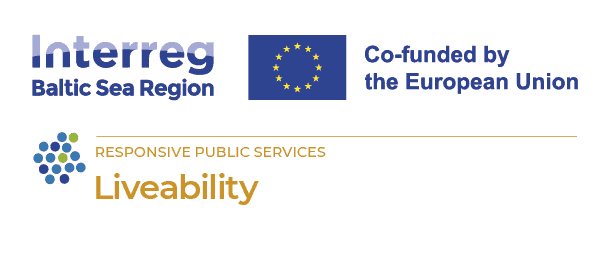
Partner Meeting in Gdynia - building up the Liveable Cities Network
02 April 2024
Building upon progress made since the last gathering, partners engaged in fruitful discussions and updates regarding various project components.
One of the standout features of the event was a captivating study visit to two of Gdynia’s innovative testbeds: the ZOH Community Center and the Wymiennikownia – Youth Center for Social Innovation and Design. Participants had the opportunity to witness firsthand the impactful work being done in these centers, engaging directly with the teams responsible for their operation and gaining insights into Gdynia’s municipal community center system. The visit shed light on the inclusive nature of these community centers, known locally as ‘Przystań,’ which offer a diverse range of social activities and services to residents. From cooking classes to art workshops, these spaces serve as hubs for community engagement and collaboration, reflecting Gdynia’s commitment to co-designed public services aimed at enhancing ‘Liveability’ in the city.
Furthermore, the meeting provided a platform for strategic discussions with the Union of the Baltic Cities (UBC), represented by Paulina Szewczyk, Chair of the UBC Planning Cities Commission, and Jakub Rybicki, Project Manager at the UBC Secretariat. Together, the participants explored the prospects for institutionally strengthening the Liveable Cities network and discussed mechanisms for sharing the project outcomes with cities across the Baltic Sea Region.
During the second day of the meeting, parallel working sessions focused on the practical development of the use cases and the piloting of the training programme. Cities were paired together to tackle common challenges faced in fostering the ‘Liveability’ concept in their testbeds. Specially tailored coaching sessions were designed by the Estonian Academy of Arts, which helped facilitate a problem-solving and operational exchange within the three city pairs: Kiel-Riga, Gdynia-Guldborgsund and Pori-Kolding.
As the meeting concluded with a joint evaluation round, attention turned to the next steps in the project’s evolution. Looking ahead, participants expressed optimism about the continued collaboration and the potential for meaningful impact on urban communities throughout the region.
Amidst the productive discussions and knowledge-sharing, participants also took the opportunity to explore Gdynia’s architectural heritage, immersing themselves in the city’s distinctive modernist style—a fitting reminder of the innovation and forward-thinking spirit driving the Liveability project forward.





